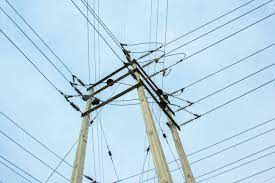
The average retail price of Automotive Gas Oil (Diesel) paid by consumers decreased by 5.71 per cent, dropping from N1462.98 in June 2024 to N1379.48 in July 2024, according to the National Bureau of Statistics (NBS) diesel price watch for July 2024.
However, on a year-on-year basis, the average price increased by 73.63 per cent, rising from N794.48 per liter in July 2023 to N1379.48 in July 2024.
Examining the variations in state prices, the top three states with the highest average price of diesel in July 2024 were Taraba State (N1721.79), Borno State (N1694.17), and Bauchi State (N1619.54).
Conversely, the states with the lowest average prices were Kogi State (N1186.31), Kano State (N1211.11), and Osun State (N1246.82).
Regarding zonal representation, the Northeast Zone had the highest average price at N1600.85, while the Southwest Zone recorded the lowest average price at N1266.57 compared to other zones.
Despite being one of Africa’s leading crude oil producers, Nigeria remains heavily dependent on imported refined products such as petrol, diesel, and aviation fuel.
This reliance makes these commodities vulnerable to international market prices and global trade fluctuations.
Although Nigeria operates three refineries, they have been inactive for decades and are unable to refine any crude oil.
The launch of the Dangote refinery hailed as a “game changer” for the industry, is expected to influence petroleum prices, including PMS and diesel positively.
In April, the refinery began supplying its first batch of diesel to local marketers at a price as low as N940 per liter. However, following the further devaluation of the Naira, the international price of diesel surged to as high as N1,200 per liter.
As the market stabilises and the Dangote refinery reaches full operational capacity, there is widespread anticipation that Nigeria will benefit from more affordable diesel and fuel prices. However, the Dangote refinery has come under intense screening from regulatory authorities over its capacity and the quality of its products.
The federal government approved the exclusion of Value Added Tax (VAT) from diesel imports for six months in October to keep prices under control.
While the order elapsed as of April 2024, there has not been any other statement from the federal government as to that.
However, the Chairman of the Committee on Fiscal Policy and Tax Reforms, Taiwo Oyedele had earlier stated that the federal government had already drafted an extension memo waiting for approval for that.
Furthermore, the Minister of Finance, Wale Edun, had also stated that there will be more duty waivers in the coming weeks as part of the proposed inflation reduction act.








